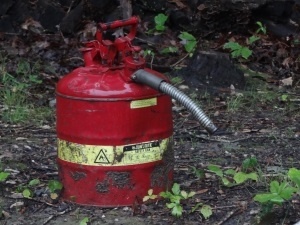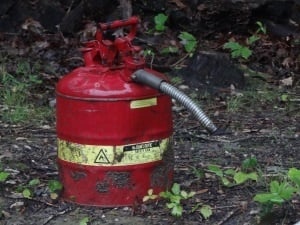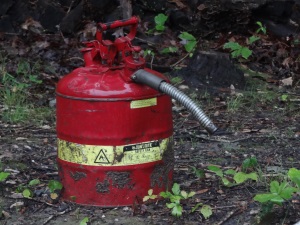Fuel storage recommendations for everyone
Fleets and businesses aren’t the only people who need to store fuel. Many consumers regularly keep smaller volumes of fuel at home, for use in lawn...
2 min read
Erik Bjornstad : Sep 13 2016

No petroleum fuels have an unlimited shelf life. And the shelf life of today’s gas and diesel that you buy at the gas station isn’t anywhere near what it used to be, mostly due to the processing it’s undergone to help it be more environmentally friendly. This isn’t a problem for the common person who may just be using it to fill up their car and drive. But it does become a consideration for the increasing number of consumers concerned with storing larger amounts of fuel for later use.
 You don’t have to have a farm to store fuel. You don’t need to be a survivalist or a prepper, squirreling away supplies for the coming end of the world. You can be just an average person who wants to be more prepared in case an emergency happens. Remember, we haven’t had a major hurricane hit the Gulf Coast in over ten years. People who lived through the active storm seasons of 2003-2005 learned valuable lessons about being prepared for emergencies. Storing fuel is (or should be) an important element in being prepared.
You don’t have to have a farm to store fuel. You don’t need to be a survivalist or a prepper, squirreling away supplies for the coming end of the world. You can be just an average person who wants to be more prepared in case an emergency happens. Remember, we haven’t had a major hurricane hit the Gulf Coast in over ten years. People who lived through the active storm seasons of 2003-2005 learned valuable lessons about being prepared for emergencies. Storing fuel is (or should be) an important element in being prepared.
We’ll talk plenty later about stabilization and rotation of fuel. But first things first. You have to store the fuel in the right place, which means “not in your house”. You’d think that’s common sense, but you know what they say about that (hint – not so common). Nor do you want to store fuel inside a generator or other equipment you plan to use it in. Select an airtight place of storage to prevent leaking of fumes. A sturdy outside shed should suffice.
Get some of the old goose neck fuel dispensers. These will help you dispense the fuel into whatever equipment it’s going into, without worrying about excess spillage. Some of those fuel tank holes can be pretty small, and a 5 gallon dispenser, when full, can weigh 35 lbs.
How much fuel should you plan to store? Depends on how long you want the supply to last before it runs out, and what you’re going to be using it in. You’ll need to project how many days you want the supply to last and how many hours a day you want to run a generator or other machine on.
Once you’ve got a fuel supply properly packaged, your work doesn’t end there. That fuel won’t keep indefinitely. So you want to use the oldest fuel out of that supply over time, gradually replacing it as time goes on. A good rule of thumb is to plan to store cans of fuel for a maximum of 6 months. So you use the oldest container up over 6 months and replace it with fresh fuel. Now it becomes the newest container. Move on to the next one.
As we said in the beginning, no fuel has an indefinite life span. They get exposed to oxygen and water and they break down. There are good commercial fuel stabilizers (like Dee-Zol Life for diesel fuel or Ethanol Defense for gasoline) that are recommended to use to help extend the storage life of whatever fuel you’re setting aside. Preppers will confirm that if you don’t use a fuel stabilizer, you can count on only getting 12 months of storage life from your fuel, even under the best conditions. A good fuel stabilizer will probably double that. And it will give you piece of mind that the fuel you store will work when you need it in any future emergency.
Image Credit: DodgertonSkillhause via MorgueFile

Fleets and businesses aren’t the only people who need to store fuel. Many consumers regularly keep smaller volumes of fuel at home, for use in lawn...
Professional stored fuel users often have fuel stabilizers in their fuel PM (preventive maintenance) arsenal to make sure the fuels they aren’t going...
With fall and winter upon us, diesel fuel users are getting into the winter fuel mindset. The biggest issue with diesel fuel in the wintertime is the...